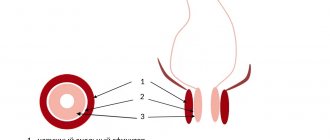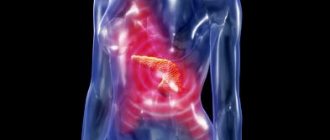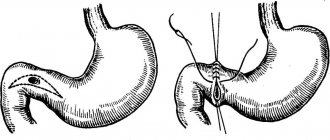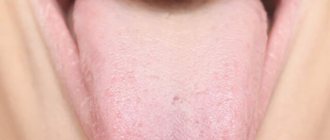The average normal blood pressure is not ideal for everyone. Deviations from the notorious 120/80 can be either upward or downward. But if high blood pressure is considered clearly dangerous to health, hypotension does not always signal a threat. For some people it is familiar and is a variant of the norm. However, extremely low numbers are a reason to be wary. Especially if accompanied by dizziness, weakness and lightheadedness.
Physiological causes of low blood pressure
For an adult, blood pressure less than 95/65 mm is considered excessively low. But there are categories of people who feel comfortable with such indicators, and when the numbers increase to the ideal 120/80, they experience obvious signs of hypertension: headaches, arrhythmia and severe stress. At first glance, this is a paradox, but doctors recognize the existence of individual physiological norms that differ from the average.
- Slightly reduced blood pressure, for example, is typical for residents of high mountain regions, professional runners, and young women of fragile asthenic build. It is called compensatory. Usually this condition is not causing concern and does not lead to any health consequences.
- In some cases, vascular tone indicators decrease briefly with sudden changes in body position. These are orthostatic changes, also related to the norm. May be accompanied by momentary dizziness.
- Postprandial hypotension occurs after overeating. This is also a normal reaction of the body sending a large volume of blood to the gastrointestinal tract. In this case, the appearance of weakness or drowsiness is possible.
Physiological fluctuations in blood pressure are typical for people during air travel, sudden deterioration of weather, and exposure to various radiations. Indicators return to normal when the situation stabilizes.
Pathological factors of low pressure
If hypotension leads to insufficient blood circulation, hypoxia, heart rhythm disturbances, headaches and fainting, you need to sound the alarm. The critically low blood pressure limit is 85/55, which may be followed by loss of consciousness and vascular collapse. And regular attacks can lead to a stroke or heart attack.
Primary pathological hypotension is rare. Its cause is a special form of cardioneurosis, usually congenital. Secondary is not an independent disease, but a symptom of deeper health problems. The most common:
- Hypovitaminosis. Low blood pressure may be a sign of a lack of ascorbic acid, vitamins B12, A and E.
- Difficult pregnancy: with frequent attacks of toxicosis, dehydration, decreased hemoglobin levels.
- Inadequate nutrition: strict diets, fasting.
- Dystonia often causes a sharp drop in blood pressure, accompanied by tremor, dizziness, bradycardia, and loss of strength.
- Iron deficiency anemia: leads to hypoxia and systemic disorders, including a decrease in vascular tone.
- Diseases of internal organs: pancreatitis, hepatitis, stomach ulcer.
- Endocrine diseases. Hypotension is often accompanied by insufficiency of the adrenal glands and thyroid gland.
- Traumatic brain injuries. Damage to the central nervous system often manifests itself as a persistent decrease in blood pressure.
Vascular tone decreases in various acute conditions: massive blood loss, toxic shock, severe poisoning.
What is hypotension?
The term arterial hypotension (hypotension) defines a decrease in blood pressure. This is not a separate disease, but a syndrome that develops as a result of exposure to various provoking factors or against the background of diseases. A decrease in the indicator leads to a decrease in the volume and speed of blood flow in peripheral tissues. First of all, the cells of the nervous system, which are very sensitive to energy and oxygen starvation, are affected.
Low blood pressure - causes
Arterial hypotension develops due to exposure to a large number of pathological or physiological causes. The most common ones include:
- Poisoning of the body
– ingestion of various toxins from the outside with food, inhaled air, or intoxication due to the development of an infectious process.
- Violation of the regulatory influence of nervous system structures
on arterial vessels, leading to a sharp decrease in the tone of their walls - cerebral stroke, organic changes, infectious processes in the structures of the central nervous system, previous traumatic brain injuries, functional disorders of various origins.
- Dilatation of arteries against the background of decreased tone of the whole body
, which occurs against the background of physical and mental fatigue, lack of sleep, poor nutrition, hypovitaminosis (hypovitaminosis is an insufficient supply of one or more vitamins to the body).
- Decrease in circulating blood volume due to blood loss
(internal or external hemorrhage) or dehydration (loss of fluid due to uncontrollable diarrhea, vomiting, insufficient water intake).
- Severe allergic reactions
, accompanied by a pronounced decrease in arterial tone - anaphylactic shock.
- Changes in hormone levels in the blood
, which have a regulating effect on arterial tone, heart rate, blood pressure and other hemodynamic indicators - adrenaline, hormones of the adrenal cortex, pituitary gland influence the course of a large number of physiological processes in the body.
- Redistribution of fluid in the body
with a transition from the vascular bed to the intercellular substance of tissues, which leads to a decrease in the volume of circulating blood with arterial hypotension.
- Weakening of the contractile function of the heart
, provoked by pathological processes in the myocardium - infarction, myocardiopathy, myocarditis.
- Violation of the rhythm and frequency of heart contractions
, caused by various pathological factors and leading to a decrease in blood pressure.
A decrease in the level of systemic blood pressure is a consequence of pathological processes in other organs, in particular with diabetes mellitus, hepatitis, and anemia. Physiological arterial hypotension develops during the period of adaptation of the human body to a reduced concentration of oxygen in the inhaled air (stay in high mountain areas). Causes of low blood pressure in women include the effects of hormonal changes during menstruation, early pregnancy, and menopause (age-related decline in reproductive function).
Low blood pressure - symptoms?
Arterial hypotension is accompanied by a violation of the functional state of various organs and systems, which develops against the background of energy and oxygen starvation. Symptoms of low blood pressure include the following:
- General weakness
– a constant symptom of hypotension, the severity of which depends on the degree of decrease in blood pressure.
- Dizziness
– the result of oxygen starvation of neurocytes.
- Memory impairment, decreased mental performance
– low blood pressure affects a person’s higher nervous activity; signs usually appear with prolonged moderate hypotension, as well as against the background of the development of anemia.
- Paleness of the skin and visible mucous membranes
– the sign appears in cases where arterial hypotension develops sharply and is accompanied by a decrease in circulating blood volume (after bleeding).
- Headache
, which is predominantly localized in the temples, crown and can have varying severity.
With severe hypotension, a person loses consciousness, which is associated with oxygen starvation of the cerebral cortex. If systolic pressure is below 70 mm Hg. Art. acute renal failure develops, decompensation of the functions of all organs, which becomes the cause of death.
To understand why a particular patient has low blood pressure, a doctor (general practitioner, family doctor, cardiologist) must prescribe an additional objective examination. It includes various techniques, namely clinical blood tests, urine tests, ECG, X-rays, computed tomography, magnetic resonance imaging. Based on a thorough and reliable diagnosis, the correct treatment is prescribed.
Symptoms of Low Blood Pressure
The hypotonic state is characterized by:
- dizziness, dull headaches, squeezing the back of the head and temples;
- the appearance of dark circles before the eyes;
- muscle weakness, decreased sensitivity, numbness or tingling of the fingers;
- asthenia: irresistible drowsiness, apathy, absent-mindedness;
- excessive chilliness of the hands and feet.
During a sudden attack, most hypotensive patients feel lightheaded, may lose their balance, or faint. Another deterioration in health is provoked by severe stuffiness, physical fatigue, hunger, and dehydration.
Features and weaknesses of hypotensive patients
Arterial hypotension is often considered a pleasant bonus from nature, since in this case you do not face dangerous blood pressure levels and complications associated with hypertension. The cause of constantly reduced pressure is often impaired regulation of vascular tone, which can be a symptom of vegetative-vascular dystonia.
Low blood pressure is often accompanied by dizziness, morning sickness, weakness and fatigue. This makes life significantly more difficult for those who cannot boast of pressure above 100/60 mmHg. Art. Therefore, people with hypotension have habits that may seem whimsical, but at the same time help to adapt to the characteristics of the body.
- Coffee in bed.
People with arterial hypotension are physically unable to wake up when the alarm clock rings: normal vascular tone and heart rate are restored within a few minutes after waking up. And if they do risk getting out of bed abruptly, they may lose consciousness, or at least be forced to sit down and wait until the dizziness and tinnitus end. Therefore, it is better for them to wake up with a light stretch of their legs, then sitting on the bed. If no one brings you tea or coffee “in bed,” then leave a glass of water next to your bed in the evening and drink it immediately after waking up. - Only comfortable temperature
. Poor thermoregulation is a frequent companion to hypotension. In hot weather, a person with arterial hypotension will experience weakness and suffer from a lack of oxygen and headaches. If you have to sit motionless in a poorly heated office or lecture hall, a hypotensive person has a hard time: his hands and feet get cold, he feels drowsy and definitely wants to eat. At the same time, labor productivity is poor, and there is a regular desire to go out for a smoke break or coffee. Opt for coffee: it will raise your blood pressure a little and keep you warm - although it's important not to overdo it with coffee. - Intolerance to hunger and thirst
. Low blood pressure often occurs in people who are asthenic in physique. This combination of physiological qualities leads to the fact that there are very few energy reserves, and if a person cannot eat on time, then his health sharply worsens and his mood deteriorates. All this does not at all indicate a bad character, but indicates the vulnerability of a hypotensive person. Lack of water reduces the volume of circulating blood, and the already low blood pressure decreases further, which can lead to fainting. - High demands on air quality
. Since with arterial hypotension the partial pressure of blood gases is reduced, the efficiency of gas exchange is lower than with normal blood pressure. Therefore, every milliliter of oxygen in the air we breathe is important. In a stuffy room, such a person feels very bad, and this is primarily due to a lack of oxygen in the brain. - Physical laziness
.
If you once again cannot drive yourself to the gym, or simply do exercises at home, then this laziness may be due to your physiology. Physical weakness is characteristic of hypotensive people, and each workout can subsequently lead to long-term restoration of strength, cause migraines, and temporary disturbances in heart rhythm. Therefore, you need to start training with arterial hypotension gradually, evenly distributing forces, without competing with anyone. To improve adaptation to physical activity and avoid unpleasant consequences, take the drug Eltacin® , which consists of the amino acids: glutamic acid, glycine and cystine. This way you will support the heart, improve vascular regulation, and gradually increase physical endurance.







